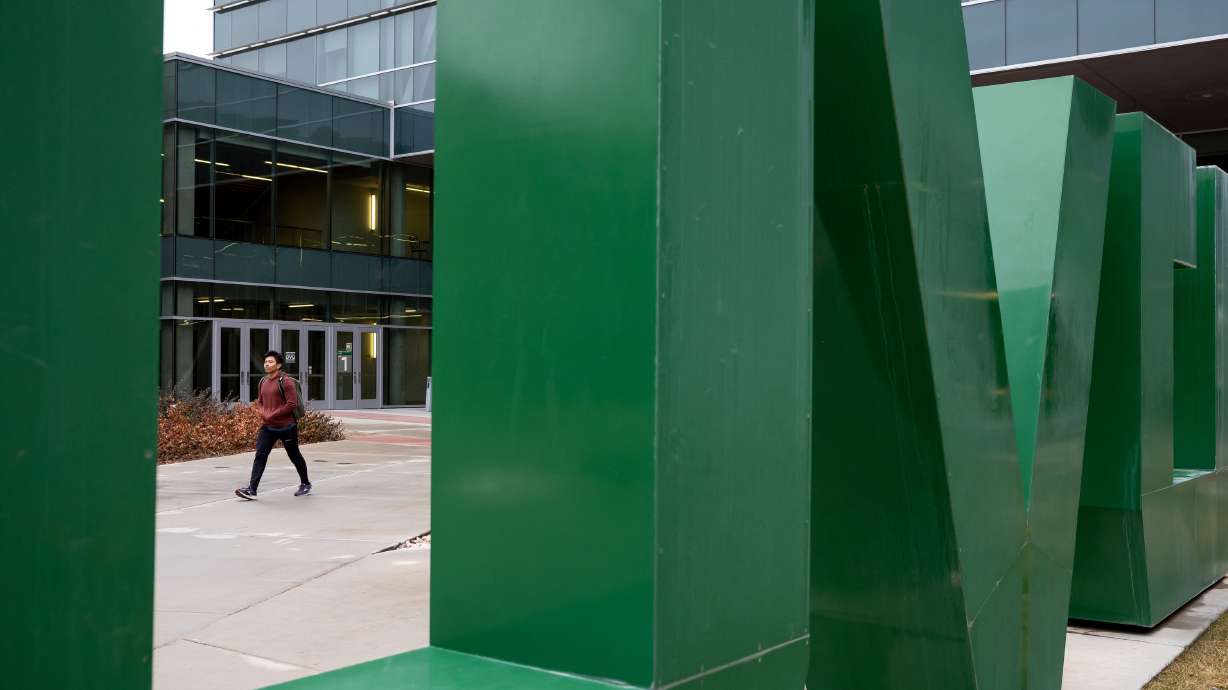Estimated read time: 3-4 minutes
This archived news story is available only for your personal, non-commercial use. Information in the story may be outdated or superseded by additional information. Reading or replaying the story in its archived form does not constitute a republication of the story.
SALT LAKE CITY — As financial aid offices at Utah's colleges and universities toil to overcome delays in the federal financial aid award notifications, the Utah Board of Higher Education has approved a policy intended to provide funding to certain state student aid initiatives.
The funding will come from proceeds of the $300 million Higher Education Student Success Endowment created in 2022 under SB172 after Utah exited the student loan processing business and higher education authorities approved the sale of the $1.2 billion loan portfolio that had been administered by the Utah Higher Education Assistance Authority.
Earlier this week, the Utah Board of Higher Education approved a policy that authorizes spending a portion of the endowment proceeds for board initiatives and allocations to degree-granting colleges and universities as well as technical colleges to supplement four state aid programs tied to financial aid, workforce development and "high impact service."
Weber State University President Brad Mortensen said state aid is especially important to support qualifying students affected by delays and issues stemming from the national rollout of the new Free Application for Federal Student Aid form.
"Given the impact of the delays in implementing the new FAFSA form, the board's action to immediately provide additional funding will significantly benefit students in need now," said Mortensen in a statement.
"At Weber State University, these funds have the potential to benefit thousands of our students who struggle to pay for college and reap the benefits of a college education," he said.
Board of Higher Education member Javier Chavez Jr. described the FAFSA delays as "a national emergency, creating barriers for the neediest of Utah students. ... We took immediate action to break down those barriers and support our students."
For the upcoming academic year, the vast majority of the annual disbursements from the endowment will supplement the following programs:
- Utah Promise Grant, which expands access to all Utahns by providing financial assistance to those who demonstrate financial need.
- Talent Development Grant, awarded by degree-granting institutions, intended to recruit and train individuals to work in designated jobs that have a high demand for new employees and offer high wages in Utah.
- Technical Education Scholarship (institutions with technical education programs), which provides financial assistance to students pursuing technical education in designated high-demand industries.
- One Utah Service Fellowship, the first of its kind in the nation to combine state and federal funding into an AmeriCorps program. The program's mission is to provide accessible opportunities for young adults to participate in high-impact service to address state needs and priorities.
Mortensen said Weber State University had only recently received information from the U.S. Department of Education that it needs to assemble financial aid offers for prospective students.
"Normally, we would start processing FAFSAs for the following academic year in November. This year, we started a couple of weeks ago. We've been able to catch up, and we've processed about 78% of what we normally would do, but there's thousands of students who haven't even completed the FAFSA because of all of this," he said.
The simplification of the FAFSA process will benefit students and institutions in the future, but until that occurs, there is "all the more need for programs like this through the endowment and other ways we can help students," Mortensen said.
"This year is a big challenge," he said.
The delays are tied to the Education Department's update of FAFSA. The Education Department worked to streamline the applications, but the rollout, expected in October 2023, didn't occur until December. Once the forms were released online, there were complications that resulted in the forms being taken down multiple times, which delayed families' access to online forms and posed challenges for families that were unable to fix mistakes in forms they had submitted.
Utah State University President Betsy Cantwell said the delays have had significant impacts for students from "challenging economic backgrounds" and for first-generation college students.









